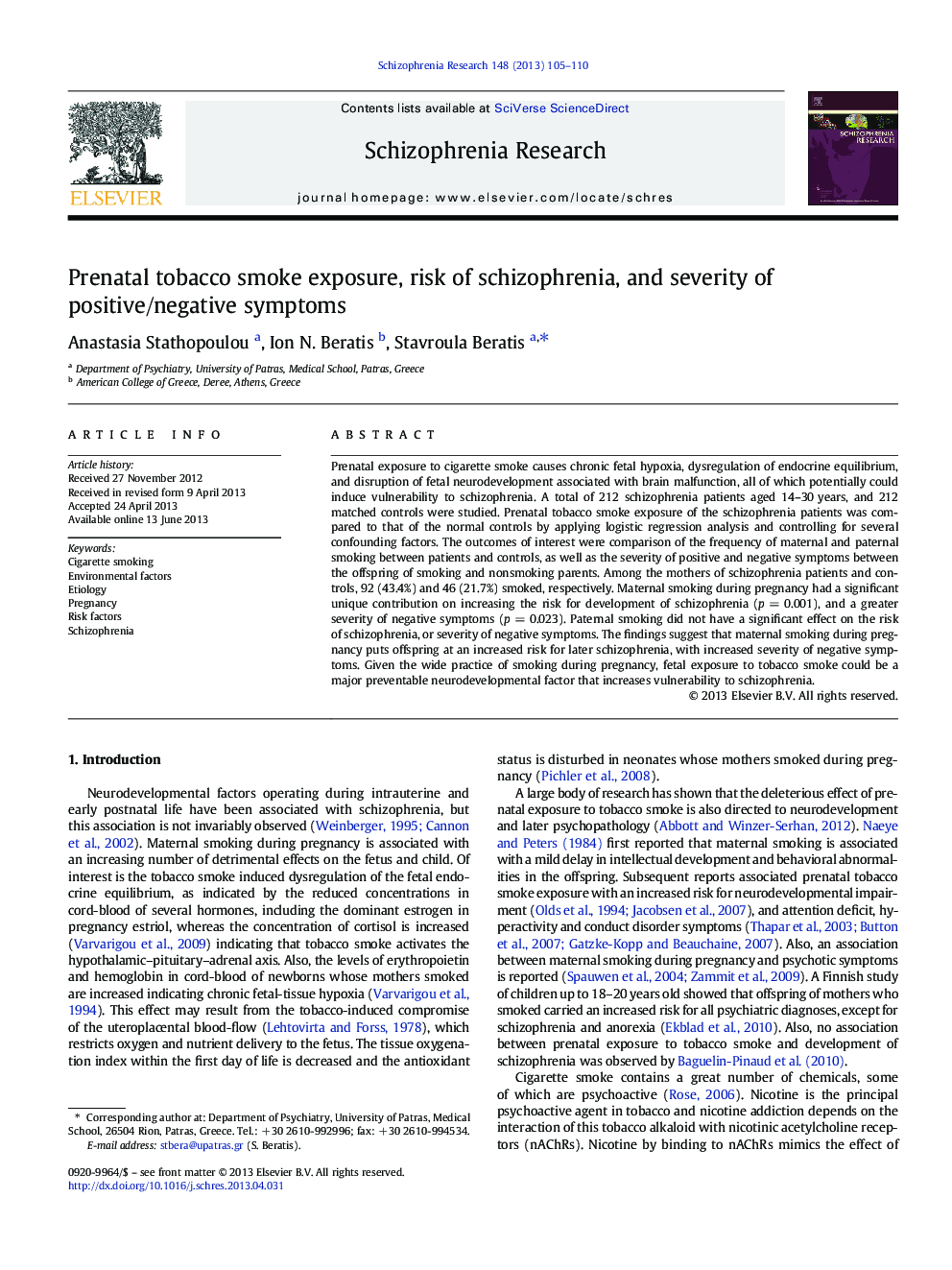| Article ID | Journal | Published Year | Pages | File Type |
|---|---|---|---|---|
| 6826057 | Schizophrenia Research | 2013 | 6 Pages |
Abstract
Prenatal exposure to cigarette smoke causes chronic fetal hypoxia, dysregulation of endocrine equilibrium, and disruption of fetal neurodevelopment associated with brain malfunction, all of which potentially could induce vulnerability to schizophrenia. A total of 212 schizophrenia patients aged 14-30 years, and 212 matched controls were studied. Prenatal tobacco smoke exposure of the schizophrenia patients was compared to that of the normal controls by applying logistic regression analysis and controlling for several confounding factors. The outcomes of interest were comparison of the frequency of maternal and paternal smoking between patients and controls, as well as the severity of positive and negative symptoms between the offspring of smoking and nonsmoking parents. Among the mothers of schizophrenia patients and controls, 92 (43.4%) and 46 (21.7%) smoked, respectively. Maternal smoking during pregnancy had a significant unique contribution on increasing the risk for development of schizophrenia (p = 0.001), and a greater severity of negative symptoms (p = 0.023). Paternal smoking did not have a significant effect on the risk of schizophrenia, or severity of negative symptoms. The findings suggest that maternal smoking during pregnancy puts offspring at an increased risk for later schizophrenia, with increased severity of negative symptoms. Given the wide practice of smoking during pregnancy, fetal exposure to tobacco smoke could be a major preventable neurodevelopmental factor that increases vulnerability to schizophrenia.
Related Topics
Life Sciences
Neuroscience
Behavioral Neuroscience
Authors
Anastasia Stathopoulou, Ion N. Beratis, Stavroula Beratis,
